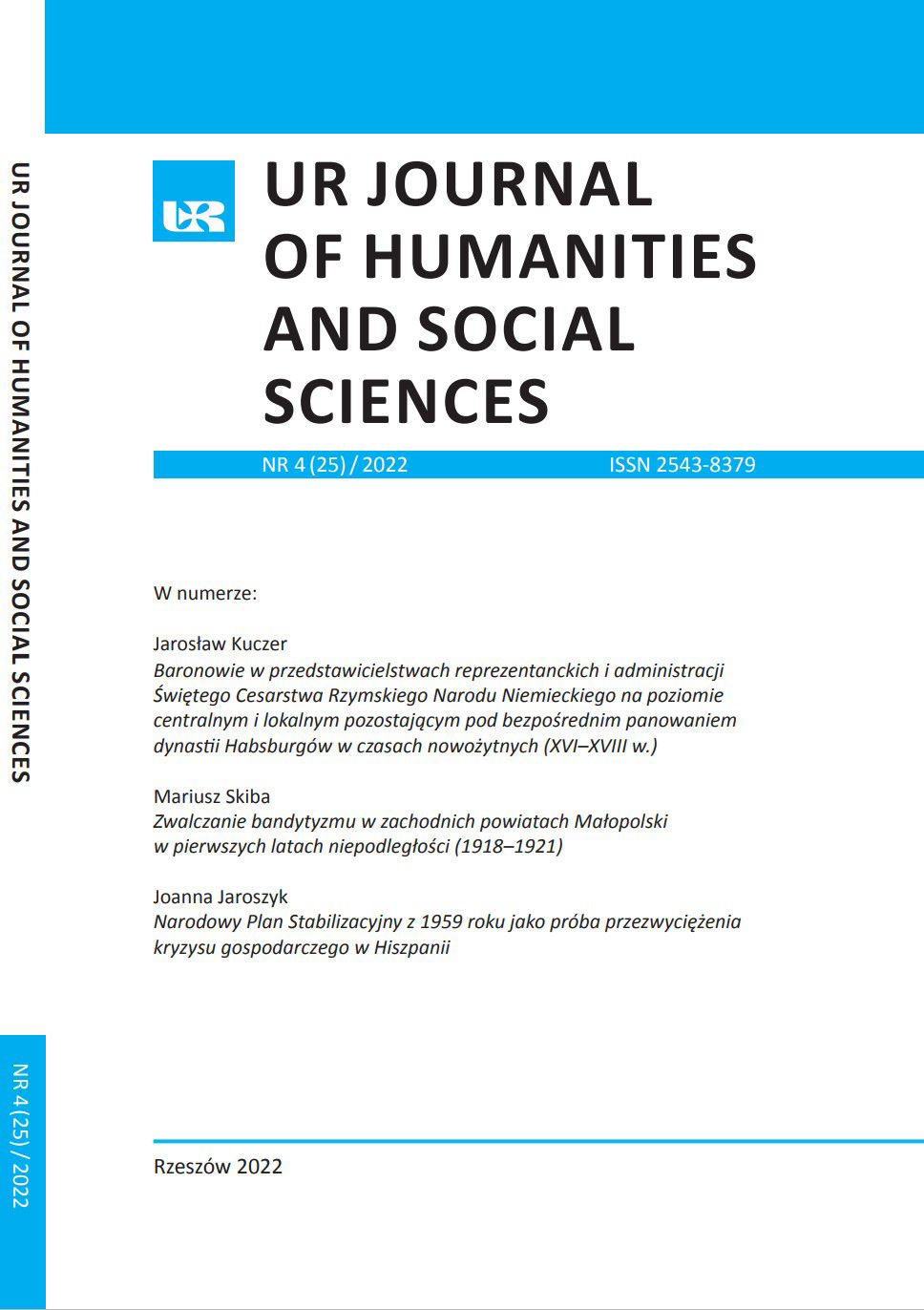Barons in representative offices and administration Holy Roman Empire of the German Nation at the central and local level under the direct rule of the Habsburg dynasty in the modern era (16th-18th centuries)
DOI:
https://doi.org/10.15584/johass.2022.4.1Keywords:
Holy Roman Empire of the German Nation, History of Germany, Baron, Baron of the Reich, history of parliamentarism, modern history, history of law, history of, administrationAbstract
The article deals with the participation of the "state of barons" (Herrenstand-, Freiherrenstand) in the representative assemblies of the German Reich and the Habsburg Hereditary Countries, which collectively constituted the Holy Roman Empire of the German Nation in the period of the 16th-18th centuries. Similarly, the participation of barons in the offices of the most important bodies has been evaluated including such instances as the Reich Chamber Court, Reichs Court Council, Court Court, and on the other hand, the role played by the barons in the clerical life of the Hereditary Lands. In this way, by combining the two images, we attempt to draw attention to the value of this group, which is difficult to overstate, for the existence of the state and indicate its broad aspirations and involvement in the public life of the state. For such self-realization played a significant role in the directions of the emperors' policy for three centuries, creating a partial supremacy of barons in both central and local offices.Downloads
Download data is not yet available.
Downloads
Published
2022-12-15
How to Cite
Kuczer, J. (2022). Barons in representative offices and administration Holy Roman Empire
of the German Nation at the central and local level under the direct rule
of the Habsburg dynasty in the modern era (16th-18th centuries). Journal of Humanities and Social Sciences, 25(4), 5–25. https://doi.org/10.15584/johass.2022.4.1
Issue
Section
Articles
License
Copyright (c) 2022 Wydawnictwo Uniwersytetu Rzeszowskiego

This work is licensed under a Creative Commons Attribution-NonCommercial 4.0 International License.



